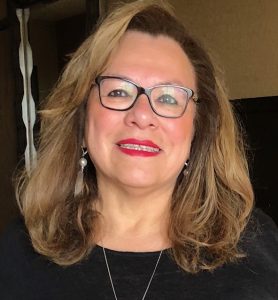Celebrating our Outstanding Alumni
On Friday, March 8, we celebrate International Women’s Day by looking at the social, economic, cultural, and political achievements of women around the world. The Faculty of Education, UBC, is proud to highlight extraordinary Indigenous women leaders who are Alumni of our Faculty.
Dr. Verna Billy-Minnabariet – EdD’12
Dr. Verna Billy-Minnabarriet of the St’uxwtews (Bonaparte Indian Band) is the daughter of Percy (Nlaka’pamux) and Marie (née Pierro) Secwépemc Minnabarriet and the granddaughter of John and Rose (née Burke) Pierro (Secwépemc) and Victor and Mary (née Edmonds) Minnabarriet (Puakist, Nlaka’pamux). She has six brothers: Wayne, Jr., Stormy, Victor, Darin, Carl, and two sisters, Virginia and Nina. She has two children Kris (Krista) and Heidi (Trevor) and four grandchildren (Rocket, River, Remington, and Alexa). She was raised in the Secwepemc and Nlaka’pamux territories and now lives on the Unceded Territory of the Musqueam, Squamish, and Tsleil-Waututh peoples.
Dr. Billy-Minnabarriet has been a passionate advocate for change through policy, structure, and creating space for Indigenous Education for over 40 years. Her focus is on empowering and strengthening Indigenous peoples through healing, holistic education, land-based learning, and economic development. Currently, she is Vice President at the Nicola Valley Institute of Technology (NVIT) where she implements education and training programs for the Native Adult Instructors Diploma curriculum. Dr. Billy-Minnabarriet chairs the Indigenous Adult and Higher Learning Association, a consortium of 40 Indigenous post-secondary institutes in British Columbia. She continues to sit on numerous provincial and national boards to influence change from policy development to Ministry appointed positions.
Dr. Jan Hare – PhD’01
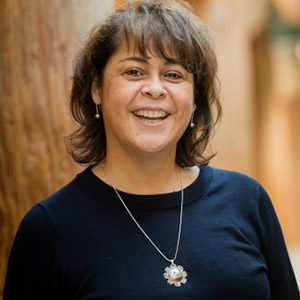
Dr. Jan Hare is an Anishinaabe scholar and educator from the M’Chigeeng First Nation, located in northern Ontario. She is currently the Associate Dean, Indigenous Education and Director of the Indigenous Teacher Education Program (NITEP) at the University of British Columbia. As an Indigenous scholar, researcher, and educator she has transformed education to be more inclusive of Indigenous ways of knowing and languages. Her research, which recognizes the holistic and multidisciplinary nature of Indigenous education, helps improve educational outcomes for Indigenous learners by centering Indigenous knowledge systems within educational reform from early childhood education to post-secondary.
For over a decade, Dr. Hare has infused Indigenous content and ways of knowing into the courses she has developed, revised, and taught in the Faculty of Education. All UBC teacher candidates now take Aboriginal Education in Canada, a course designed by Dr. Hare to ensure that beginning teachers understand Indigenous approaches to learning, histories, and contemporary realities. To date, more than 30,000 people have taken Reconciliation through Indigenous Education, Dr. Hare’s Massive Open Online Course, now in its seventh offering. She is committed to equity in teaching, learning, and research, and develops innovations that advance Indigenous education priorities across the Faculty, the University, and beyond.
Deborah Jeffrey – BEd’83, Dip(Ed)’88
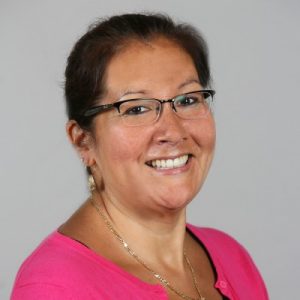
Advocate for Aboriginal education at the local, provincial, and national levels, Deborah Jeffrey has spent nearly 30 years as an educator in British Columbia.
Shortly after graduating from the University of British Columbia with a Bachelor of Education in 1983, Jeffrey entered the Prince Rupert School District as an educator and coordinator of First Nations programs and services. She later returned to UBC in 1988 to complete a Diploma in Special Education. Member of the Tsimshian Nation from Northwest BC, Jeffrey accepted the role of president of the Tsimshian Tribal Council, taking leave from the Prince Rupert School District and working with seven communities to advance the interests of the Tsimshian Nation.
In 1999, Jeffrey completed a Master of Education and a Bachelor of Laws in 2007, and was called to the bar the following year. She has worked to advance Aboriginal education through a number of roles, including as co-chair of the BC Teachers’ Federation Task Force on Aboriginal Education, co-chair of the National Working Group on First Nations Education, and as a member of the First Nations Education Steering Committee (FNESC) executive for over ten years.
In 2011 Jeffrey was appointed executive director of FNESC. As part of her role, she collaborates with leaders of 104 First Nations communities, and is a member of the K-12 Aboriginal Education Partners Table. The partnership brings together representatives from among the most significant stakeholders in the BC education system, including the BC Ministry of Education, Indian and Northern Affairs Canada, BC Teachers’ Federation, and the BC Superintendents Association.
Dr. Jo-ann Archibald, O.C. – BEd’72
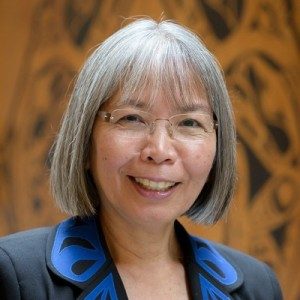
Indigenous scholar, author, and pioneer in the advancement of Indigenous education, Jo-ann Archibald (Q’um Q’um Xiiem) is the former associate dean for Indigenous Education and director of the Indigenous Teacher Education Program (NITEP), and is professor of Educational Studies in the Faculty of Education at the University of British Columbia. She completed her Bachelor of Education at UBC in 1972 and continued on to earn both a master and doctorate in education.
Member of the Stol:lo Nation, Archibald is described as a visionary and an agent of change, and is nationally recognized for creating culturally relevant teacher education and graduate programs for Aboriginal students. During her career of more than 40 years, her work transformed the learning landscape through curriculum and program development, policy, teaching and research.
As a member of the board of directors of the First Nations House of Learning at UBC, Archibald worked with the Faculty of Arts, Agricultural Sciences, Law and many others to develop and implement Indigenous projects on campus.
At the national level, Archibald co-led the Accord on Indigenous Education in 2010, a groundbreaking collaboration to improve Indigenous education in Canada. At the international level, she helped establish a formal relationship between UBC and the University of Auckland in New Zealand, where she served as director for the International Research Institute for Maori and Indigenous Education.
Archibald is the author of Indigenous Storywork: Educating the Heart, Mind, Body, and Spirit published by UBC Press in 2008. She also served as editor of the Canadian Journal of Native Education.
In 2000, Archibald won a National Aboriginal Achievement Award for Education and an AERA (American Education Research Association) Scholars of Color Distinguished Career Contribution Award in 2013.
Dr. Gwen Point – BEd’87
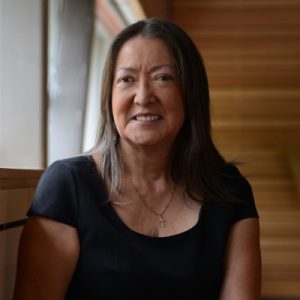
University chancellor, Gwendolyn Point has dedicated her career to creating opportunities for students to learn and grow, particularly for Aboriginal students through leading and mentoring those in pursuit of higher education.
A member of the Skowkale First Nation, Point completed her Bachelor of Education in the Indigenous Teacher Education Program (NITEP) at the University of British Columbia in 1987. She followed her bachelor’s with a Master of Education, and is near completion of her doctorate. At various points in her career, Point taught at the elementary, secondary, and post-secondary levels, and held positions in leadership and administration. She worked as coordinator of First Nations education in her home town of Chilliwack, as regional coordinator of the Aboriginal services branch of the BC Ministry of Education, and as manager of the Stó:lō Nation Education Department, responsible for K-12, post-secondary, and First Nations language and culture programs.
In 2005, Point was appointed assistant professor in the School of Social Work at the University of the Fraser Valley, where she taught First Nations Studies. She was dedicated to creating space in the classroom for Aboriginal students. When she started teaching at the post-secondary level in 1990, there were only two Aboriginal students in her class; in 2014, there were 26. She resigned from her teaching post in late 2014 to accept the position of university chancellor.
Throughout her career, Point has been recognized with numerous honours. She was given the Ambassador Award from Aboriginal Tourism BC; recognized as Honorary Witness by the Truth and Reconciliation Commission of Canada; and lent her name to two bursaries through the Chilliwack School District, in addition to receiving a number of community awards for her contributions to Stó:lō language and cultural education.
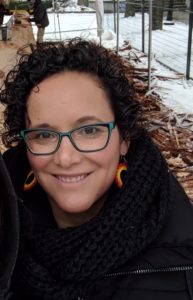
Chas Desjarlais – BEd’99, MEd’14
My name is Chas Desjarlais and I am a nêhiyaw/Metis educator and scholar working for the Vancouver School Board as the Indigenous Education District Vice Principal. I am a member of Cold Lake First Nations and a Treaty Six First Nation; and doctoral candidate in the Department of Educational Studies pursuing a doctorate in Educational Leadership and Policy.
I am grateful to be given the opportunity to be an educational leader and take great care in ensuring that I share the ‘gifts’ I have received from the Creator with those I get to work with. Who I am and where I come from has greatly influence my leadership and how I engage and interact with administrators, educators and students. Living and leading, walking the path of ‘miyo-pimatisiwin’ (living the good life) as a nehiyaw/Metis iskwew is my sole purpose in passing on the teachings to my two daughters, Paige and Kaylyn.
Gayle Bedard – BEd’84, Dip(Ed)’92, MEd’98
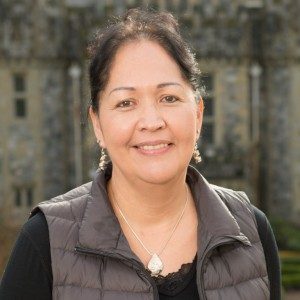
Aboriginal education advocate Gayle Bedard served the First Nations community in her role with the Ministry of Education, and through the direction of councils and programs. During her more than 30-year career, Bedard was an elementary and secondary school teacher, counsellor, principal, and district principal for Aboriginal education in the Surrey school district.
Bedard, a Tsimshian member of the First Nations community of Port Simpson (Lax Kw’alaams), devoted herself to building bridges between Aboriginal and non-Aboriginal communities. As district principal, she used curriculum changes as a tool to support this connection. In Bedard’s view, when Aboriginal education is part of the curriculum, there is no need for a separate Aboriginal education department. Bedard adapted curricula to include education of territorial history to promote feelings of pride and belonging among Indigenous communities. In her role, Bedard addressed the issue of Aboriginal student graduation rates with the British Columbia Association for Supervision and Curriculum Development.
Bedard holds multiple degrees from the University of British Columbia. She graduated in 1984 with a Bachelor of Education from the Indigenous Teacher Education Program (NITEP), and a Master of Education and Leadership in 1998.
Currently, she is the director of First Nations programs and partnerships for the Yukon government and community services director of the Tsawwassen First Nation. She served on the advisory board for NITEP, the First Nations Education Council, and is president of Gwa’lgum’ax (GGAX) Consulting.
Verna Kirkness – LLD’94
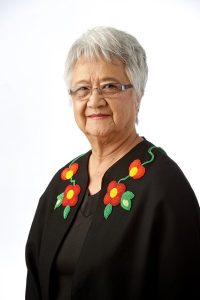
Verna Kirkness’ early education career began in the classrooms of day and residential schools in Manitoba in the 1950s, as both a teacher and principal, and continued to an associate professorship at the University of British Columbia in the 1980s and 1990s. She is one of Canada’s most widely respected and recognized advocates of Aboriginal excellence in education.
In addition to her work in educational institutions, Ms. Kirkness has had a significant impact on education policy. She was a member of the committee that developed that Indian Control of Indian Education policy in the 1970s, which altered the course of Aboriginal education in Canada. She was founder of the Mokakit Indian Education Research Association. Her interest in Aboriginal education has led her to many partnerships with international Aboriginal education groups in New Zealand, Australia, the USA and Yakutia (formerly of the USSR). She has been published widely in academic journals in the areas of youth, language and education, and has spoken at major conferences on these issues.
In 1984 Ms. Kirkness played a key role in the development of Ts’kel, which is a graduate program in Education for First Nations students at UBC. In 1987, she was involved in the establishment of the First Nations House of Learning. She spearheaded and coordinated a major public/private $2 million fundraising campaign to build a First Nations House of Learning longhouse. The longhouse, which opened in 1993, serves as an important focal point for First Nations students at UBC. Ms. Kirkness, who is Cree, holds a Master of Education from the University of Manitoba, was awarded an Honorary Doctor of Laws from the University of Western Ontario and and Honorary Doctorate of Humane Letters from Mount Saint Vincent University. She was the recipient of the 1990 BC Educator of the Year Award, the 1990 Canadian Educator of the Year Award, and the Commemorative Medal for the 125th Anniversary of Canada.
The Kirkness Adult Learning Centre was opened in Winnipeg in 1983, named to honour her as “a distinguished teacher and author on educating of Native Indians.”
Jessica La Rochelle – BA ’06, MEd ’18
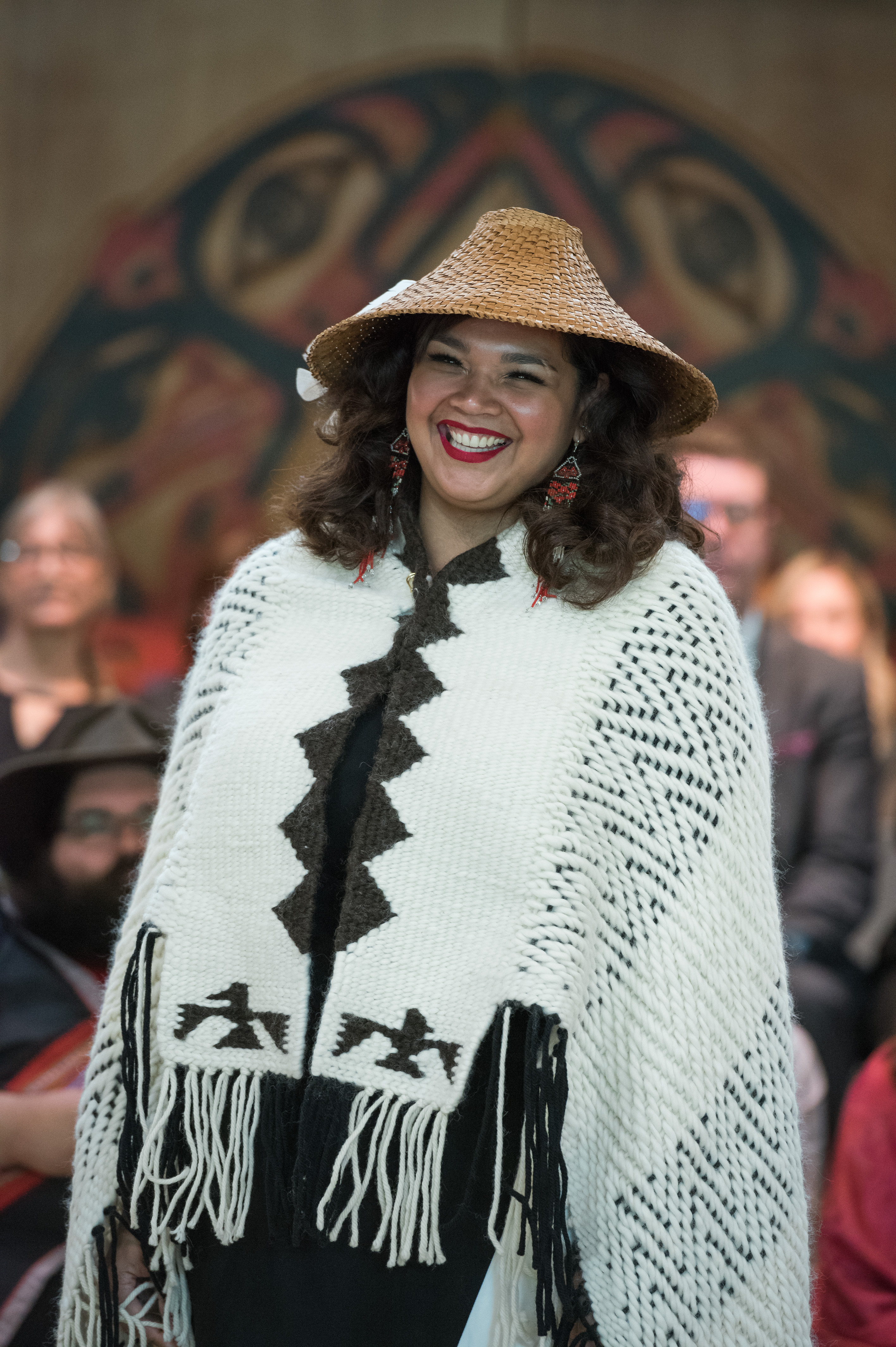 Jessica La Rochelle is the granddaughter of Siyamtelot and Swelimeltxw (Shirley and Rudy Leon). She shares her traditional name, Lhkwemiya, with her mother. Her great-grandfather gave her mother the name and it was passed on to Jessica by her maternal grandparents. There is a set of mountains known as the three sisters near her home territory; her name refers to the third sister. Jessica is Stó:lō, Okanagan, and also has Trinidadian ancestry on her father’s side. Jessica is very proud to be the Assistant Director of NITEP, the Indigenous Teacher Education Program, and the Manager for Indigenous Education in the Faculty of Education. Her grandmother is a graduate of NITEP. Jessica is an alumna of University of British Columbia (UBC), completing her Bachelor of Arts degree there in 2006 and her MEd in Educational Administration and Leadership with a focus on Leadership in Indigenous Education in May 2018. At NITEP, Jessica continues to be motivated by the future teachers and leaders in the program to provide an engaging and positive learning experience and evoke change in Indigenous education.
Jessica La Rochelle is the granddaughter of Siyamtelot and Swelimeltxw (Shirley and Rudy Leon). She shares her traditional name, Lhkwemiya, with her mother. Her great-grandfather gave her mother the name and it was passed on to Jessica by her maternal grandparents. There is a set of mountains known as the three sisters near her home territory; her name refers to the third sister. Jessica is Stó:lō, Okanagan, and also has Trinidadian ancestry on her father’s side. Jessica is very proud to be the Assistant Director of NITEP, the Indigenous Teacher Education Program, and the Manager for Indigenous Education in the Faculty of Education. Her grandmother is a graduate of NITEP. Jessica is an alumna of University of British Columbia (UBC), completing her Bachelor of Arts degree there in 2006 and her MEd in Educational Administration and Leadership with a focus on Leadership in Indigenous Education in May 2018. At NITEP, Jessica continues to be motivated by the future teachers and leaders in the program to provide an engaging and positive learning experience and evoke change in Indigenous education.
I am so grateful to work in an environment that fuels my passion for Indigenous education and feeds my spirit. My roles allow me to travel to Indigenous communities to engage with potential students and educational leaders to recruit them to our programs, work with an amazing team of educators and strong advocates, engage with leaders in Indigenous education to promote and facilitate reconciliation and resurgence, and connect with colleagues within the Faculty of Education and across campus to support and empower Indigenous students. As a Wellness Liaison, the lead for the NITEP Mental Health and Wellness program and member (former chair) of the Aboriginal Mental Health and Wellness Working Group, I am passionate about creating and maintaining safe spaces for students to have meaningful discussions about mental health and also what it means to be an Indigenous student at a mainstream university.
DeDe DeRose – BEd’81, MEd’93
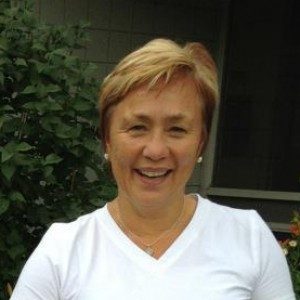
British Columbia’s first Superintendent of Aboriginal Achievement, DeDe DeRose is a prominent advocate for Aboriginal student success.
Born in Williams Lake to a Secwepempc family and as a member of the Esketemc First Nation, DeRose graduated from UBC’s Indigenous Teacher’s Education Program (NITEP) with a Bachelor of Education in 1981. She also earned a Diploma in Education in 1990, and completed the UBC Ts”kel Master’s Program in 1993. DeRose taught in the Cariboo Chilcotin School District for nine years, and then served as principal for various elementary schools in the Kamloops/Thompson School District for nearly two decades.
During her career as an educator, DeRose advocated for the inclusion of Aboriginal languages, history, and culture in the school curriculum. A community organizer, she sought the genuine involvement of parents, caregivers, and local communities in her schools. She served as the first Aboriginal educator at the former BC College of Teachers for over eight years, and has chaired and co-chaired the First Nations Education Council at UBC for 13 years. In 2005, DeRose was awarded the inaugural Teacher Educator Award from the Association of BC Deans of Education for her work in supporting and promoting teacher education at the school level.
In 2012, DeRose was appointed to the BC Ministry of Education as the first ever Superintendent of Aboriginal Achievement. The position was created to improve the rates of high-school graduation for Aboriginal youth, which is on average 30% lower than non-Aboriginal students.
Dr. Ethel Gardner – BEd’84, MEd’86
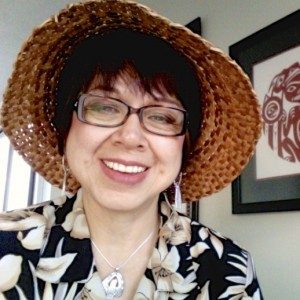
Key contributor to Aboriginal language revitalization and Aboriginal education, Ethel Gardner has made a significant impact over the last three decades.
A Stó:lō member of the Skwah First Nation in BC, Gardner has earned four degrees over the course of her academic career, including a Bachelor of Education from the University of British Columbia’s Indigenous Teacher Education Program (NITEP) in 1984 and a Master of Education from UBC’s Ts’‘kel program in 1986.
In her work revitalizing Indigenous languages, Gardner relied largely on technological innovation. She developed an electronic master-apprentice language-learning program that combined human knowledge and computer programming. With three Elders as the program’s first masters, the software helped train future educators to be fluent in Stó:lō Halq’eméylem. The strength of her academic work earned her substantial research grants in her field, including the E-Master-Apprentice Pedagogy for Critically Endangered Languages and the Language Planning for Anishinaabemowin Revitalization in Grand Council Treaty #3.
Gardner has been highly praised for designing innovative teacher education programs. Her training modules make use of computer-assisted instruction, web-based writing and teaching tools, and audiovisual web communication techniques. Educators who have mastered the electronic program are able to coach students remotely.
Gardner has held a number of leadership positions in academia, most recently at the University of Alberta in a lead role with the Canadian Indigenous Languages and Literacy Development Institute in the Faculty of Education. Although retired, Gardner continues to work as an Elder scholar at a number of post-secondary institutions in BC.
Dr. Lyn Daniels, EdD’16
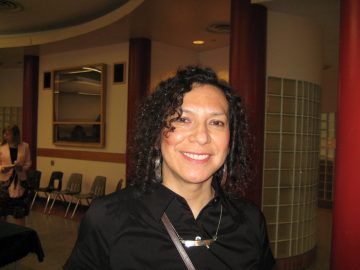
Dr. Lyn Daniels, EdD’16, is Cree and Metis and belongs to the Kawacatoose First Nation located in Southern Saskatchewan. She has worked in several school districts in BC and for the Ministry of Education as a coordinator and consultant in Aboriginal Education and as District Vice-Principal Aboriginal Education, and is currently the Director of Instruction, Aboriginal Learning, In Surrey Schools. Lyn completed a Doctor of Education Degree at UBC in Policy and Educational Leadership. Lyn’s research focused on Aboriginal college students’ memories of public education and how the compare to the memories of former Indian residential school students and educational policy in the colonial past and present.
Joan Palmantier Gentles, O.B.C. – BEd’80
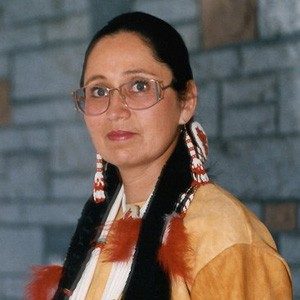
Leader and educator, Joan Gentles has made a significant contribution through many different roles over the course of her career, including rodeo judge. Well-known in the Cariboo-Chilcotin Coast communities, Gentles has a deep and meaningful impact on the lives of many of the region’s residents.
A member of the Toosey Band, Gentles was the first Aboriginal courtworker in the Williams Lake area. She played an instrumental role in sensitizing the courts, lawyers, and law enforcement officials to justice issues among Aboriginal people.
She went on to earn a Bachelor of Education from the Indigenous Teacher Education Program (NITEP) at the University of British Columbia in 1980, after which she became Aboriginal education coordinator of the Cariboo-Chilcotin School District. In 1994, Gentles advanced to director of instruction for the First Nations department of the school board.
Working in remote areas, her career as an educator also included counselling for victims of family violence or sexual abuse and delivering workshops on alcohol abuse awareness. Outside of the classroom, she taught ceremonial dancing and shared parenting skills with teenagers and adults. A member of a distinguished Cariboo rodeo family, Gentles actively competed in rodeos, and was the first certified female rodeo judge in British Columbia.
In 1992, she was appointed to the Order of BC for her community contributions. For her long-standing service to Aboriginal communities, Gentles received a special tribute at the International Women’s Day dinner at Thompson Rivers University in 2012. She was also named Williams Lake Citizen of the Year and received a BC Rodeo Lifetime Achievement Award.
Dr. Madeleine MacIvor – BEd’87, MA’93, EdD’12
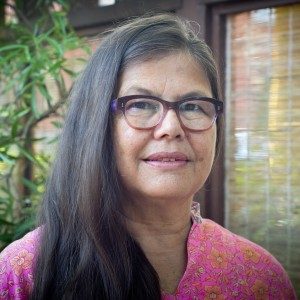
Educator Madeleine MacIvor was among 11 Aboriginal doctoral students to graduate from the University of British Columbia’s Faculty of Education in 2012. It was the largest group of Aboriginal students to graduate with doctoral degrees from any Canadian university education faculty in one year. MacIvor graduated from the Indigenous Teacher Education Program (NITEP) at UBC with a Bachelor of Education in 1987. For her master’s degree in 1993, she described how science and technology education was used in the 1800s to undermine Indigenous peoples’ belief systems and organizational structures, while at the same time promoting Christianity and Victorian work values. Subsequently, MacIvor became interested in incorporating Aboriginal perspectives into school science. Her 1995 work, Redefining Science Education for Aboriginal Students is still cited in discussions of Indigenous science education.
Turning her analytical lens to more recent times, her doctoral dissertation provided a crucial record of changes in Aboriginal post-secondary education policy in BC from 1986 to 2011.
MacIvor, now retired, began working at UBC in 1989. Her roles included First Nations coordinator for the Faculty of Forestry, coordinator of student services for the First Nations House of Learning (FNHL), and later FNHL’s associate and acting director. Early in her career, she developed a summer science program for Aboriginal students that continues to run annually at UBC. During her time in the Faculty of Forestry, she encouraged and supported Aboriginal students, and improved enrolment and retention.
MacIvor received UBC’s Harry E. Taylor Canadian Indigenous Graduate Prize in Education in 2005. Five years later, she received UBC’s Jean Barman Prize in Indigenous Education. In 2011 she received a Doctorate of Letters, honoris causa from the University of the Fraser Valley for her work in Aboriginal education.
Dr. Margo Greenwood – PhD’09
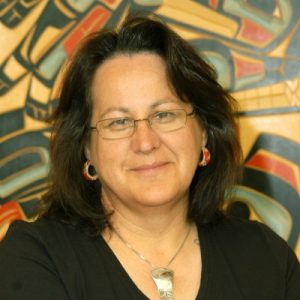
Indigenous scholar of Cree ancestry, Margo Greenwood is internationally recognized for her work with Indigenous children. Greenwood has worked as a front-line caregiver of early childhood education services, and passes on her knowledge by designing early childhood curricula, programs, evaluations, and through teaching the next generation of early childhood educators. In recent years, Greenwood has focussed her work on public health and knowledge translation.
In 2009, Greenwood received her PhD from the University of British Columbia. Her dissertation focused on Indigenous early childhood and the potential for education to rebuild Indigenous identity and community. Over the course of her career, she has served with provincial, national, and international groups, including UNICEF, the United Nations, and the Canadian Council on Social Determinants of Health, Public Health Network of Canada, and the Canadian Institute of Health Research, specifically, the Institute for Aboriginal Peoples Health. In recognition of her years of service in early childhood education, Greenwood received the Queen’s Golden Jubilee Medal in 2002. In 2010, in acknowledgement of her ground-breaking work on Aboriginal health for UNICEF, Greenwood was named ‘Academic of the Year’ by the Confederation of University Faculty Associations of British Columbia (CUFA BC), and in the following year, she was honoured with the National Aboriginal Achievement Award for Education.
In addition to her teaching duties as a full professor of both First Nations Studies and Education, she is Vice-President of Aboriginal Health for the Northern Health Authority and Academic Leader of the National Collaborating Centre for Aboriginal Health.
Sandra Lynn Lynxleg – BEd ’00, MFA ’13
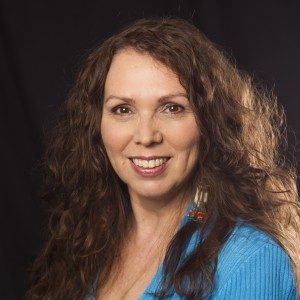
Restorative justice leader, administrator, educator and poet, Sandra Lynn Lynxleg has given voice, presence and perspective to aboriginal education.
A status member of the Tootinaowaziibeeng reserve in Manitoba, Lynxleg was born in Halifax, Nova Scotia. Working full-time and raising three daughters, Lynxleg persevered for 13 years to earn her Bachelor of Education from UBC’s Native Indigenous Teacher Education Program (NITEP) in 2000. She went on to get a Master of Fine Arts in Creative Writing in 2013, and became a founding member and co-president of the UBC Creative Writing Alumni Association the following year. Her UBC accomplishments include the Amy E. Sauder NITEP Scholarship, the Sharp Family NITEP Graduation Prize, and two Faculty of Arts Graduate Awards.
A child of a residential school survivor, Lynxleg focused her career on helping aboriginal youth succeed in school and in the community. She is a founding member and acting president of the Restorative Justice Society – North Okanagan. She developed and supported many Aboriginal education programs and services while an administrator for the Vernon school district, including two First Peoples’ Academies at Seaton Secondary School and a Hoop Dance Program that saw 25 hoop dancers perform at the Vernon Olympic Torch Ceremony. In the nine years she served as District Principal of Aboriginal Education, her programs and services helped to increase Aboriginal attendance and graduation rates, an improvement that was acknowledged by the BC Minister of Education.
In 2010, 2013 and 2015, she co-produced and published three chapbooks of poetry featuring Elders and students in School District 22 (Vernon). These chapbooks are part of a larger provincial collection with the founder of The Elder Project. In 2014, her workshop “Strawberry Fields Forever: Planting Seeds, Growing Poets” was selected for presentation at the First Nations Education Steering Committee provincial conference. That same year, under the same title, her work with the Elder Project and the three chapbooks were recognized as an innovative approach to curriculum. The pedagogy and chapbooks will be featured in a partnership book with UBC’s Indigenous Education and BC Principals’ and Vice Principals’ Association, entitled Celebrating K-12 Aboriginal Education in British Columbia: Successes in Curriculum, Pedagogy, and Policy.
Sandra’s first book of poetry, Glass Beads, was published by Black Moss Press in 2013. Lynxleg’s poetry has appeared in several anthologies, including Force Field: 77 Women Poets of British Columbia. She has been published in the Fiddlehead, Leaf Press, Our Canada Magazine, Rice Paper Magazine, and Quills Canadian Poetry Magazine.
Dr. Shelly Johnson – EdD ’11
Educator and researcher, Shelly Johnson has spent more than two decades working for Aboriginal communities.
In 2011, Johnson earned her Doctor of Education in Educational Leadership and Policy at the University of British Columbia and then joined the Faculty of Social Work as an assistant professor. Her doctoral thesis I Screamed Internally for a Long Time: Traumatized Urban Indigenous Children in Canadian Child Protection and Education Systems examined the over-representation of First Nations children in the child protection system, and the social and political forces that put them at risk.
Johnson draws on both her personal and professional experiences to teach future generations of social workers. She is a member of the Keeseekoose First Nation in Saskatchewan, and served as chief executive officer of a First Nations child and family services agency in Victoria. She serves on the board of directors of the Canadian Association of Social Work Education and chairs the national Indigenous Social Work Educators Network.
Johnson is currently the principal investigator on four research projects, including one to support Musqueam culture and language revitalization, funded by the Social Sciences and Humanities Research Council of Canada (SSHRC). She is part of a national multi-year SSHRC grant to conduct community-based urban Indigenous research. In 2013, Johnson was named the UBC Peter Wall Institute for Advanced Studies Early Career Scholar, in support of her research on indigenizing higher education, cultural self-determination and activism.
In 2008, Johnson was recognized with a Governor General’s Canadian Leadership Award, and received an Honorary Citizen of the Year award from the City of Victoria, BC in 2006.
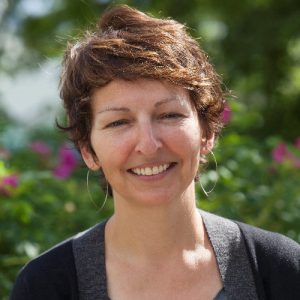 Dr. Sharon Hobenshield – EdD’16 – Director, Aboriginal Education
Dr. Sharon Hobenshield – EdD’16 – Director, Aboriginal Education
Sharon Hobenshield, the Director, Aboriginal Education at the Vancouver Island University, is from the Gitxsan First Nations on her mother’s side and her father is of German ancestry. She has a B.A., B.S.W. and a Master’s of Education in the area of curriculum development. She has worked in the field of social services and education, working and teaching with both urban and rural Aboriginal communities throughout the province of BC. Sharon is married and has twin girls. She believes strongly in the spirit and resiliency of Aboriginal people and promotes that Aboriginal ways of knowing and being in this world, have to be built into program development and service delivery in education.
Dr. Rheanna Robinson – PhD’16
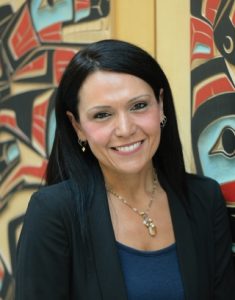
It is my pleasure to introduce myself to you as one of the faculty members in the department of First Nations Studies at UNBC. I would like to acknowledge the traditional territory of the Lheidli T’enneh where the Prince George campus of UNBC sits and I have had the privilege to live for more than a decade.
My name is Rheanna Robinson and I am a proud member of the Métis Nation of British Columbia. I am also a proud mom to two young sons, Sean and James, who are also of Nisga’a ancestry. While my Métis heritage comes from Manitoba’s Red River Valley, I was raised in the community of Smithers, BC and moved to Prince George in 1995 shortly after UNBC opened. I earned my BA in History/First Nations Studies (2001) and my MA in First Nations Studies (2007) at UNBC. I earned my PhD from the Department of Educational Studies at UBC. I have been teaching at UNBC since 2006 and deeply value the role of Indigenous Knowledge within institutions of higher learning.
Marjorie Dumont – Bed’96, Med’14

The protocol of introducing oneself to others is vital to my Indigenous roots, and so I share this with you. Dini ze, ts’ake ze, skiy ze. Hadih, So’endzin. Gin tabi honzoo. C’tan sozi. Sne Wila’at endzin. Sbeb Wah tah ghet endzin. N’iwh Dini ze’ cho Na’Moks endzin (Male chiefs, female chief, sons and daughters of the chiefs. Greetings, how are you? Today is a great day. My name is C’tan. My mother’s name is Wila’at, and my father’s name is Wah tah ghet. My house chief’s name is Na’Moks. I belong to the Tsayu-Beaver clan of the Wet’suwet’en First Nation. My roots are also Gitksan.
I have a Bachelor of Education and a Master of Education from the University of British Columbia.
I currently teach in the Vancouver School District as a Resource Teacher. I also taught in the Surrey School District from 1997-2017. I was the Assistant Director for Aboriginal Education in the Professional and Social Issues Division at the BCTF for a four-year term. Community and Public Service Beyond my teaching profession, I have been a member of the provincial Aboriginal Education Advisory Committee and the Surrey Teachers’ Association’s Aboriginal Education Committee, a president and vicepresident of the Provincial Specialist Association (PSA) Aboriginal Education Association, and developed and trained Professional and Social Issues (PSI) and School Union Rep Training (SURT) workshops. In the last five years with the Surrey School District, I was the staff representative. With my teaching experience, I have developed a strong understanding of the wide range of professional issues.
I self-identify as a teacher of Aboriginal ancestry, but more importantly, a teacher from the Wet’suwet’en and Gitksan nations. It is with great privilege and honour that I have experienced and learned so much from the different roles I have had within the public education system. I have witnessed the progress of the teaching profession in BC, both the challenges and growth. It is like traveling in a canoe out to open sea. There are many with me, traveling in the same direction with the same destination in mind – that of making improvements to the education system. Although each one of us has a different idea or plan for our journey, we must continue to pull together. We all have a responsibility to ensure that all children, teachers, parents, and community members are pulling together for the betterment of a happier and safer place. The BC education system, without a doubt, has to go through turbulent storms like declining or increasing enrollment, child poverty, growing concern for mental health issues (for both teachers and students), and inflation. Over the last few years, the BC Teachers’ Council spent time considering and defining the role of a teacher in BC’s education system, including what the current education system needs and how post-secondary institutions are getting prospective teachers ready for the classrooms. As the landscape for lndigenous education undertakes important changes in BC, I want to have a role in bringing an lndigenous voice to the table. In this canoe named Education, “Let’s all pull together!”
Dr. Pamela Rose Toulouse, PhD ’01
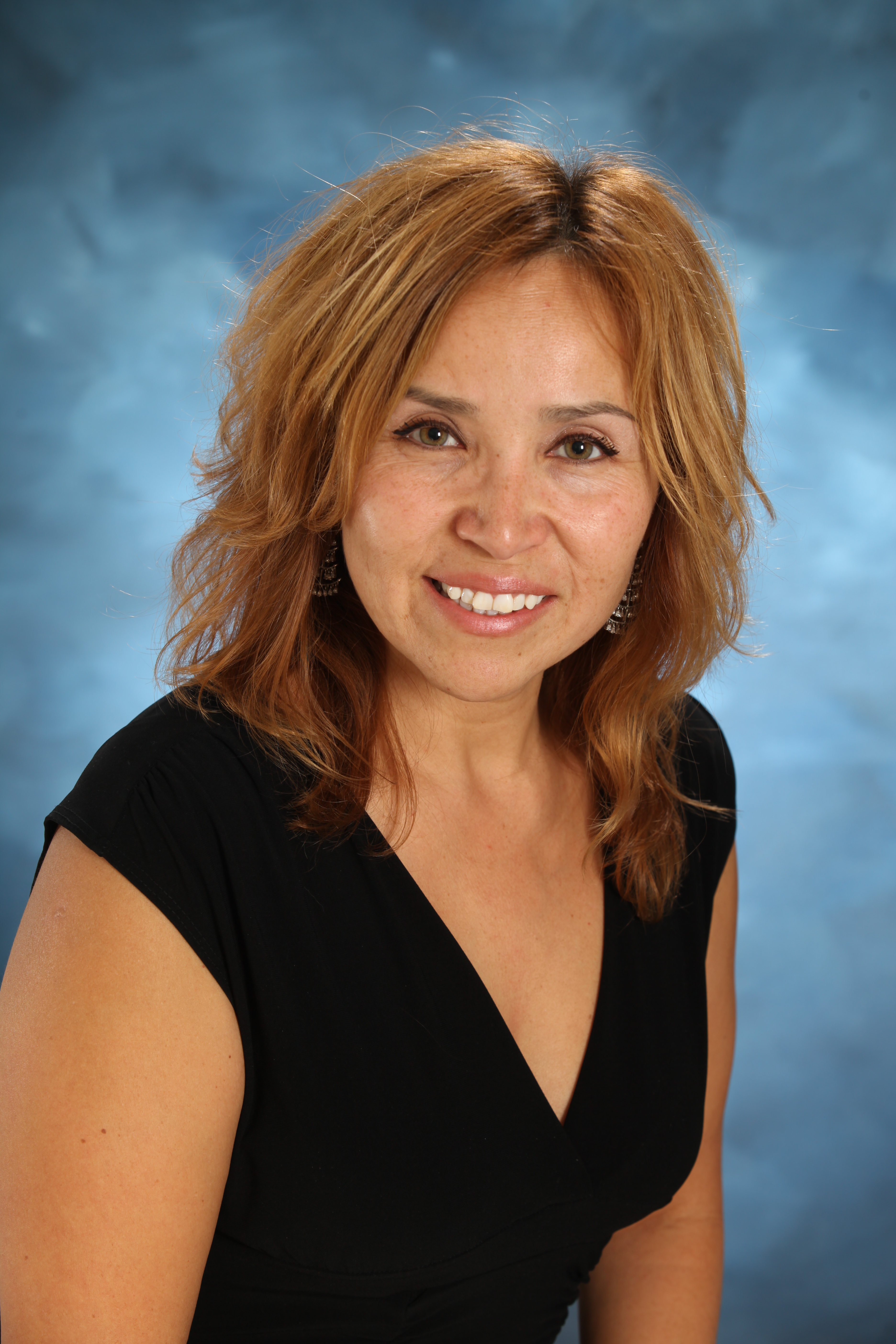
Dr. Pamela Rose Toulouse is an Associate Professor in the Faculty of Education (Concurrent English Language) at Laurentian University. She has taught Primary/Junior Methods, Junior/Intermediate Methods, Indigenous Studies as a Teachable, English as a Teachable, Primary/Junior Literacy, Junior/Intermediate Literacy, Introduction to Social Work & Native Social Welfare, Indigenous Ways of Learning, Indigenous Relations in Community Contexts (Masters Level) and Independent Studies/Field Courses (PhD Level). Her areas of specialty are inclusive education, classroom management, lesson planning, learning cycles, assessment/evaluation, technology, differentiated instruction, Indigenous Education and social justice collaborations. She is a National 3M Teaching Excellence Award Fellow and has also been cited in previous editions of Maclean’s magazine as one of LU’s favourite professors.
Dr. Pamela Rose Toulouse is originally from the community of Sagamok First Nation. She is a proud Ojibwe/Odawa woman that comes from a long line of educators. Dr. Toulouse celebrates many years of activity (entering her 25th year) in the formal educational setting, beginning as an elementary school teacher and then finding herself in the role of colleague within the university system. She is well known for her contributions in Indigenous Education. Dr. Toulouse has published well over 50 resources which include books, chapters in books, curriculum pieces, articles, videos and other key selections.
Dr. Pamela Rose Toulouse is fondly known for her dynamic teaching, commitment to equity and passion for education. She chairs various committees, works with a variety of school boards, presents regularly and is active in her areas of research. Dr. Toulouse continues her life journey in the field of education by representing her Nation and profession in a respectful and meaningful way.
Cheryl Sebastian – BEd’80, Dip’94

Educator and advocate for Aboriginal cultural preservation, Cheryl Sebastian impacts Aboriginal education in British Columbia through the implementation of Aboriginal language programs, cultural curricula, and numerous education agreements. Her outstanding leadership reaches all areas of the educational system, and her impact on early learning, administration, and literacy earned her the 2013 Alumni Teacher Award from the University of British Columbia’s Faculty of Education.
Sebastian was among the first students to take part in UBC’s Indigenous Teacher Education Program (NITEP), graduating with her Bachelor of Education in 1980. After graduation, she moved back to her home territory, teaching at First Nations schools in the area for more than 13 years. While teaching full-time she completed her Diploma in Library Education at UBC in 1994.
After spending more than 16 years of her education career in the classroom, Sebastian completed a Master of Education in educational counselling, which led to leadership opportunities. She was district principal and director of instruction for Aboriginal Learner Support and recently appointed district principal of Aboriginal Education for the Kamloops School District. Sebastian also took on leadership roles in several provincial organizations, including the First Nations Education Steering Committee (FNESC) and the Ministry of Education.
As a member of the Gitxsan Nation, Sebastian has been a consistent and influential advocate for Aboriginal cultural preservation. Working tirelessly alongside elders and linguists, she established a curriculum to teach the Gitxsan language as a part of the regular high school program in her home community of Hazelton, BC. Through her efforts both inside and outside the classroom, Sebastian was a major driver behind the advancement of Aboriginal Education and preservation of Gitxsan cultural heritage.
Pauline Waterfall, O.B.C. – Bed’90
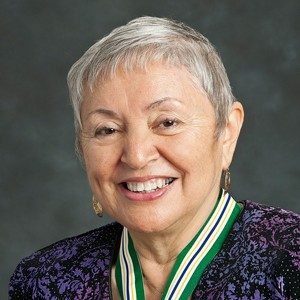
Educator, artist, and author, Pauline Hilistis Waterfall is an advocate for access to education for all First Nations people. A member of the Heiltsuk First Nation, she has a deep history of dedication to her community and the students of Bella Bella, BC.
For 40 years, Waterfall worked to establish culturally appropriate learning for all age groups. Founder of the Bella Bella School Board in 1976, she fulfilled a dream to have youth attend school year-round in their own community after a 75-year history of being sent away to residential schools.
Like many Aboriginal students of her generation, Waterfall attended a residential school. In search of further education, she travelled to Vancouver to complete grade 12. She later graduated with a Bachelor of Education from the Indigenous Teacher Education Program (NITEP) at the University of British Columbia in 1990.
In Bella Bella, her vision that education could be a tool for healing, empowerment, and independence yielded two centres for adult and post-secondary education. The Waglisla Adult Learning Centre offers upgrading for adults and Heiltsuk College offers post-secondary education. She taught three generations of learners at the college and saw the majority advance to full-time work, job skills training, or study at post-secondary institutions. She served as executive director of the college until her retirement in 2009.
Waterfall actively participates in Heiltsuk community life. She is a cultural “knowledge keeper” and played a significant role in the revitalization of the Hailhzaqv language. In 2001, she was named a finalist for Ecotrust, Canada’s Indigenous Leadership Award in Conservation, in honour of her community work on cultural revitalization and community health.
Among her professional accomplishments, Waterfall was a founding member of the Indigenous Adult and Higher Learning Association (IAHLA) in 2003, where she worked extensively with the Ministry of Education. She served in many capacities, including chair of the board and treasurer. She also served as an executive member of the Mid-Coast First Nations Training Society.
For her contributions to Aboriginal education and cultural conservation, and the many lives she touched through her work, she was appointed to the Order of British Columbia in 2010.
Carolyn Roberts – BEd’14, MEd’18
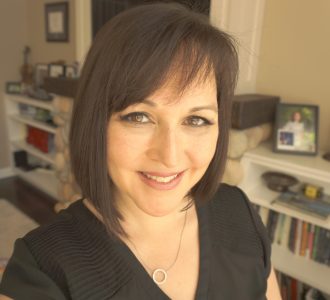
Carolyn Roberts is Coast Salish and Sto:lo from Squamish Nation, her birth Mother is Coast Salish from N’Quatqua Nation and her Birth Father is Sto:lo from Tzeachten Nation. Carolyn is an Indigenous academic that holds two degrees from UBC, a Masters of Education Degree in Aboriginal Education and Leadership and a Bachelors of Education Degree. She also holds a Bachelor’s of Jazz Studies from Capilano University.
Carolyn has been an educator of over 20 years and is currently the Principal of Xwemélch’stn Etsimxwawtxw the on reserve elementary school for the Squamish Nation. She is currently working with the Nation towards revitalizing the Squamish language and culture by converting their elementary school into a Squamish language immersion school. Carolyn continues to be a strong voice and leader for the resurgence of Indigenous people reclaiming their languages, their history and their cultures. She is working towards a brighter future for all Indigenous people and the seven generations yet to come.
Dr. Airini – PhD’97
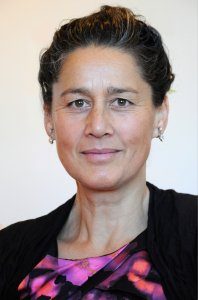 Dr. Airini is the Dean, Faculty of Education and Social Work, Thompson Rivers University, BC, Canada. Concurrently, Airini is Adjunct Professor, Victoria University (Melbourne, Australia), a honorary appointment for distinction in advancing research in education, diversity and lifelong learning, and Adjunct Professor AUT University (Auckland, New Zealand). As a Fulbright Scholar at Howard University, Washington DC, Airini researched how to convert higher education policy into better results for under-served students. Airini’s current research focuses on designing 21st century systems to close gaps in education success and lift social outcomes.
Dr. Airini is the Dean, Faculty of Education and Social Work, Thompson Rivers University, BC, Canada. Concurrently, Airini is Adjunct Professor, Victoria University (Melbourne, Australia), a honorary appointment for distinction in advancing research in education, diversity and lifelong learning, and Adjunct Professor AUT University (Auckland, New Zealand). As a Fulbright Scholar at Howard University, Washington DC, Airini researched how to convert higher education policy into better results for under-served students. Airini’s current research focuses on designing 21st century systems to close gaps in education success and lift social outcomes.
Airini has led strategy and policy development in OECD and developing nations, including the Cook Islands’ 15-year education strategy (ECE to tertiary) (budget value NZ$112 million) and the Tongan teacher education review (budget value $9 million). Airini worked for the United Nations Education and Scientific Co-operation Organisation Paris office, as project leader for international education resource development. In 2011 Airini was invited to provide future global directions for UNESCO action in Higher Education. She was an invited editor for the UNESCO-affiliate APCEIU (Asia-Pacific Centre of Education for International Understanding) based in Korea and published on international civics education. She held a Ministerial appointment to the UNESCO NZ Education Sub-Commission, and was instrumental in advancing the UNESCO Associated Schools Project Network (NZ). She has published on public policy development and reform for national and international contexts.
In Canada Airini provides leadership in curriculum reform at all levels. She was appointed to the BC Ministries of Education and Advanced Education’s Think Tank for Personalized Learning in Graduation Years (2015). In 2016 the BC School Superintendent Association funded the first province-wide research into effective practices by senior school district leaders that Airini is co-leading (CDN$75,000).
Airini has significant education strategy and change experience. She has more than 15 years experience in senior administration roles in higher education. At TRU Airini is responsible for approximately 110 full-time and part-time Faculty members, 9000 enrolments per year, and a budget of CDN$9.3 million. Programs include teacher education, social work and human services at both undergraduate and graduate levels, and academic access programs. Since commencing (Nov 2014), Airini has led the start-up of First Nation language and culture studies, and the Indigenous student research mentoring program: Knowledge Makers (CDN$50,000). With her skilled team, ECE teacher education has been expanded to Indigenous communities to BC’s rural communities (Williams Lake-4 Nations, Prince George-17 Bands) and the Faculty has secured Ministry of Education funding to co-lead with School District 73 the development of BC’s first K-16 curriculum, intentionally linking schooling to university education. Further program developments include BEd specializations in Trades and Technology, and in Science, Technology and Mathematics; and the significant expansion of open access learning/distance education courses. Airini is an invited member of the governance group: the Green College Advisory Board, UBC.
Previously Airini was the founding leader for the highly regarded School of Critical Studies in Education (2008-2013) within the Faculty of Education, at NZ’s highest ranked research university, The University of Auckland.
Joann P. Green – Bed’00
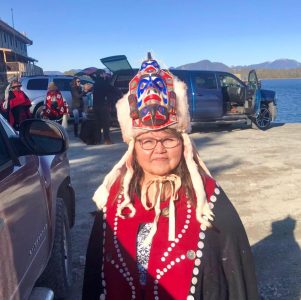 Joann P. Green, Executive Director of the Heiltsuk College & Waglisla Adult Learning Centre, Bella Bella B.C, is of Heiltsuk descent, is an Educator and community leader from the Hailzaqv Nation. Bella Bela is located on the Central Coast of British Columbia. Since Graduation, she has worked as an Educator and community leader and has conducted research on her Hailzaqv language to determine the number of fluent speakers remaining. She is an adult educator and fully supports capacity building.
Joann P. Green, Executive Director of the Heiltsuk College & Waglisla Adult Learning Centre, Bella Bella B.C, is of Heiltsuk descent, is an Educator and community leader from the Hailzaqv Nation. Bella Bela is located on the Central Coast of British Columbia. Since Graduation, she has worked as an Educator and community leader and has conducted research on her Hailzaqv language to determine the number of fluent speakers remaining. She is an adult educator and fully supports capacity building.
Throughout her career Joann has worked with various organizations in her home community. She currently serves on the following:
• Restorative Justice Committee
• Qqs Board
• Kunsoot Board
• Hemas Council
• First Nations Education Steering Committee
• First Nations School Association
• Served on Heiltsuk Tribal Council
• Community Leader, Hereditary Chief since 2007
Joann has had the privilege of working with Adult Education in her home community for the past 26 years. In 2000 I graduated from UBC/NITEP and greatly appreciates what her students bring to class with them. Education is building on what students already know and use what they know about who they are and where they come from. She works together as a team with an Elder in Residence, two Hailzaqv language teachers, Office Administration and other staff members who work together to keep their programs up and running.
Over the years Joann has worked in partnership with other institutes that offer Post Secondary programs in her home community to support those students who experience difficulty transitioning into urban settings. In 2013-14 the Bella Bella NITEP Centre had 10 students who transferred to UBC. Prior to hosting the NITEP Centre we partnered with Camuson College to run a Licensed Practical Nurse Program in partnership with Camuson College.
Joann is passionate about supporting her community and advocates not only for her students but community members as well. Her institutes motto is, If we can get one student through then we have succeeded! She is a strong advocate for promoting the importance of teaching the cultural values, knowledge and language, without our language and culture our people have nothing, her grandmother instilled in her that cultural values and knowledge, that is what makes us strong!
